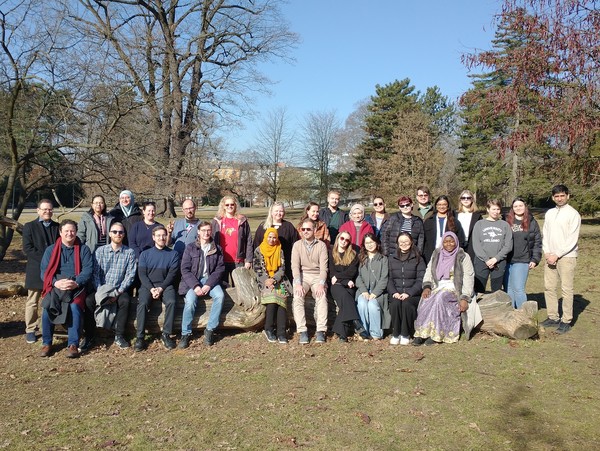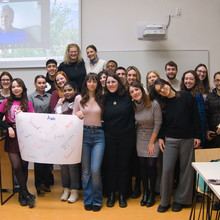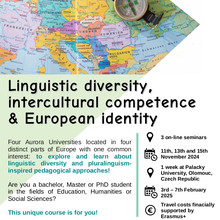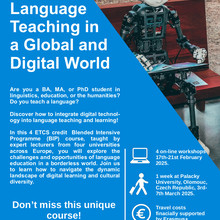The Language Centre at the Faculty of Arts has been busy lately. Two BIP courses have taken place in the beginning of the year, attracting visitors from large parts of Europe and beyond to Olomouc.
The first one was “Linguistic diversity, intercultural competences & European identity”, which ran between 3rd and 7th February. Students and staff from 6 different universities around Europe met at in Olomouc for the second iteration of this course, organised by the Language Centre in cooperation with Università degli Studi di Napoli Federico II in Naples, Innsbruck University, and Universitat Rovira i Virgili in Tarragona, under the auspices of the Aurora network.
The course focused on pluralingualism, the cultural and linguistic background in Europe and intercultural skills. The week was full of workshops and practical activities for the students, who come from a wide variety of background and study fields, such as linguistics, finance, pedagogy and law. They engaged actively in the topic and created new understanding for the complex situation of language and identity in Europe today. And more than that, they created new international contacts and lay the foundation for new cooperation across the borders of Europe.
The course built on the foundations laid in Naples 2023, when the course was first taught. The number of participants and the number of universities represented cannot be described as anything else than a great success and proof of the robustness BIP course system. The aim is to not only repeat the course in the future, but also to build on the results to grow further cooperation within teaching as well as research.
Between 3rd and 7th March the next course took place: “Language Teaching in a Global and Digital World.” More than 30 students plus staff from Olomouc, Helsinki University, Duisburg-Essen University and the University of Iceland met at the Faculty of arts to discuss and learn about globalization and digital language learning. Among the very interactive activities during the course we practiced how to use AI in language learning, how to find the best practices for classes in the on-line environment and how to use diversity as an advantage in learning. The course will be used as the beginning of further cooperation, opening up further opportunities for students to improve the language skills in new environments.
“I believe this kind of activities is key to strengthen our university,” says Markus Öbrink, the main organizer of the courses. “First of all, our students get to meet young people from a wide variety of countries and backgrounds. But more, by providing a forum for students and staff to meet and work together we open up new opportunities. We create new platforms for cooperation and learning from each other. All of us, both teachers and students, gain so much from this. It’s reaches the heart of what university education truly represents.”



